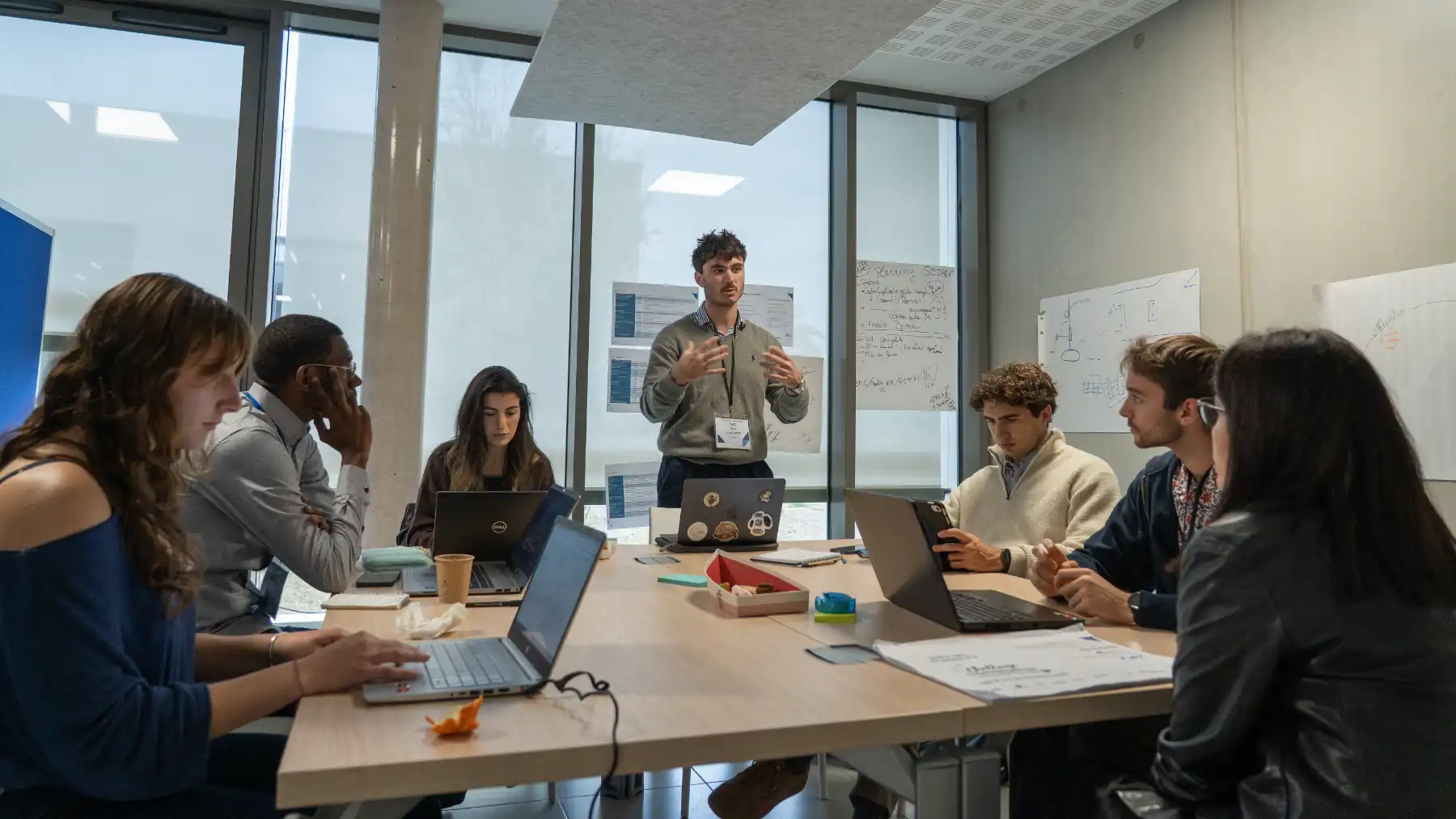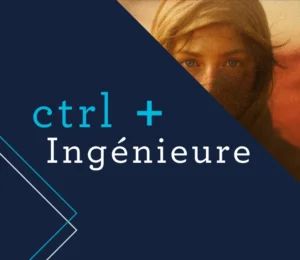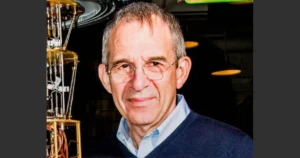From October 23 to 26, 2025, nearly 70 engineering and management students from IMT’s Technological Universities gathered in Sète for the third edition of the IMT Challenge Convergence. The focus: the sea, sea tech, and the blue economy.
Backed by partners and sponsors – Airbus, Ifremer, the Agence des Transitions, Blue | Invest in Sète Cap d’Agde Méditerranée, Sète Agglopôle Méditerranée, VINCI and the Carnot Institute TSN – the event invited students to tackle six real-world challenges proposed by local companies and organizations, grouped under three strategic themes:
- Circular economy and resource management
- Energy transition and low-tech innovation
- Coastal resilience
Their mission : to pitch sustainable, low-tech, locally grounded solutions to a panel of experts – and compete for one of the three Challenge prizes.
A Unique Format for Responsible Innovation
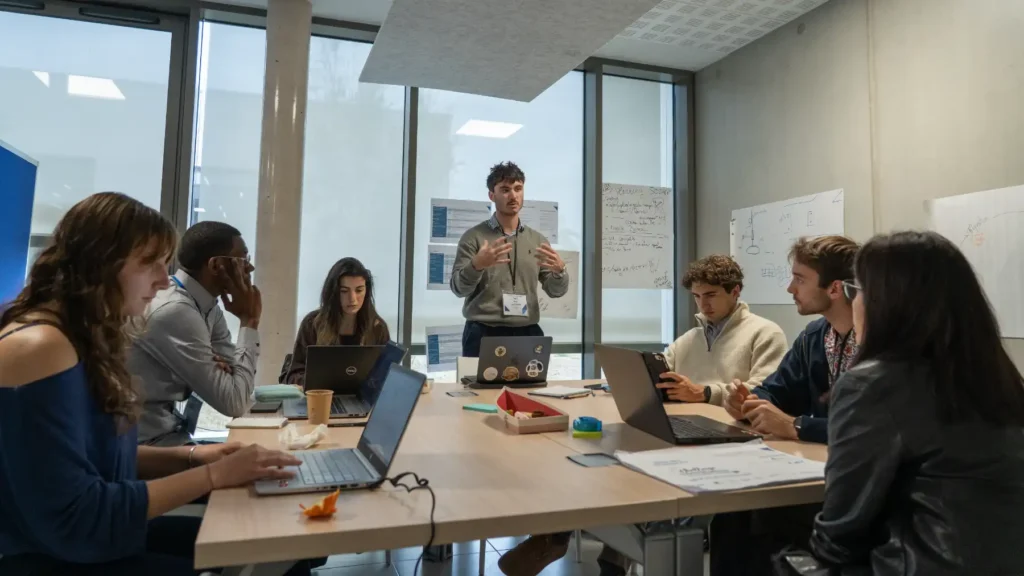
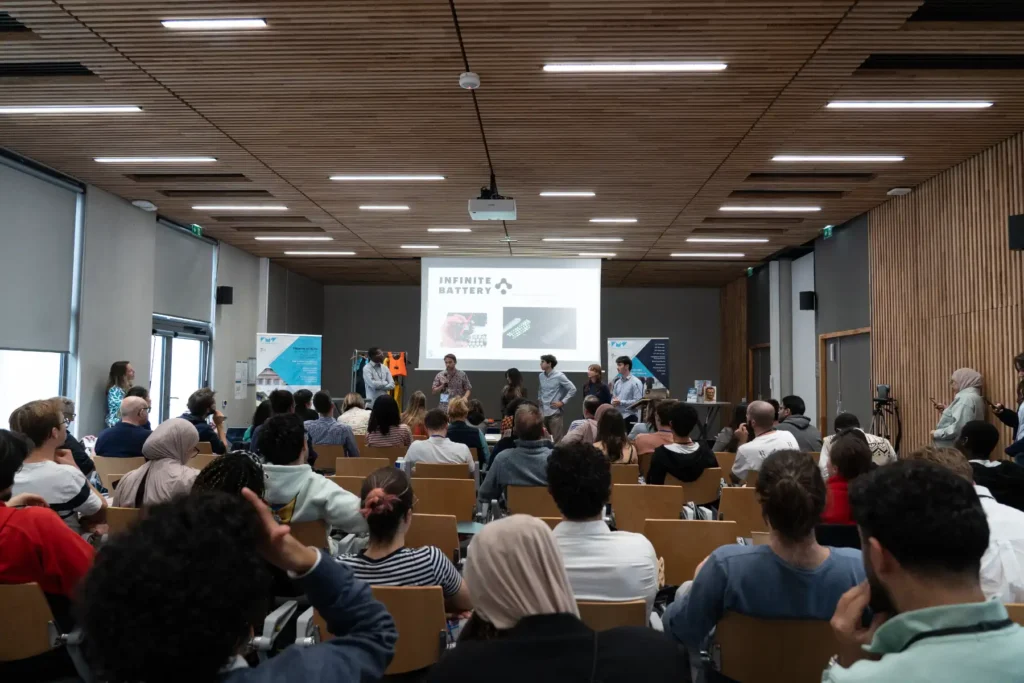
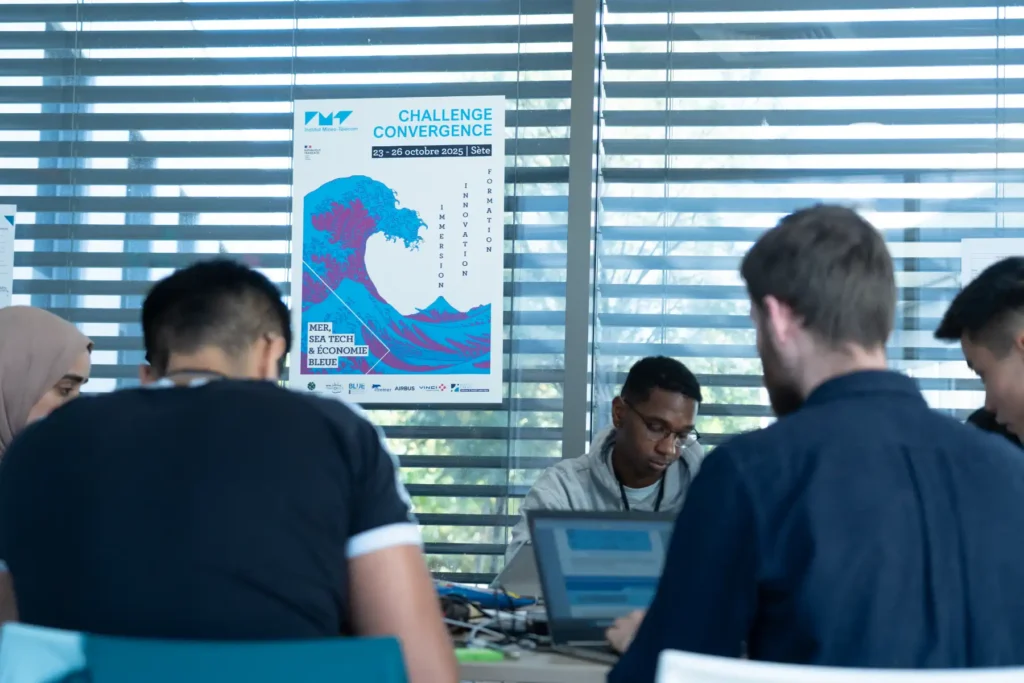
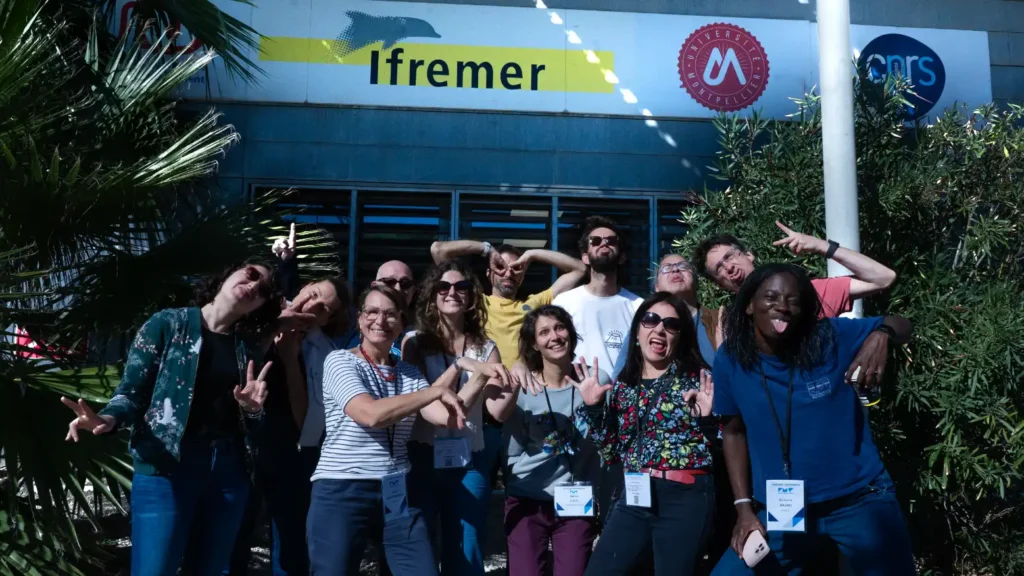
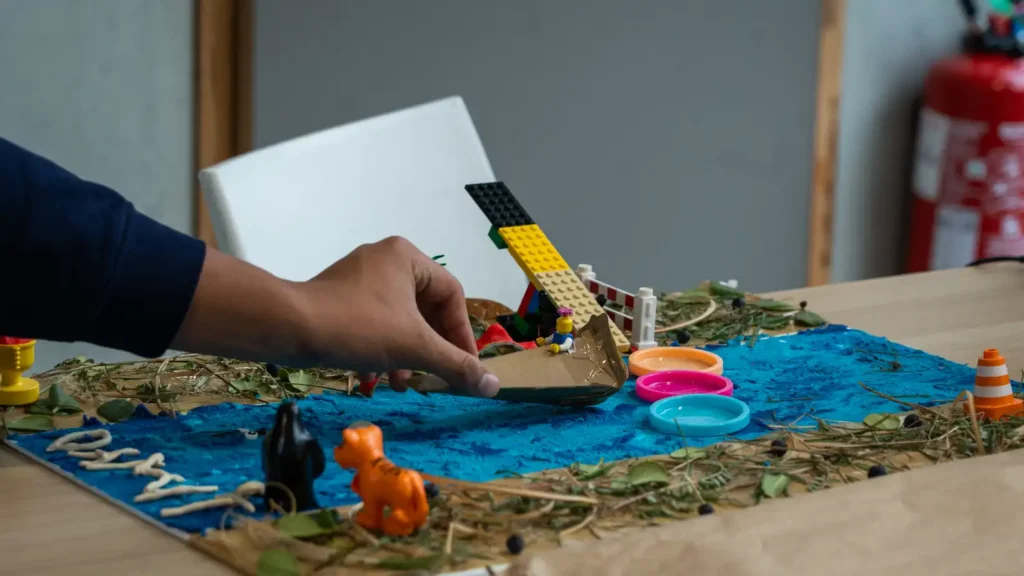
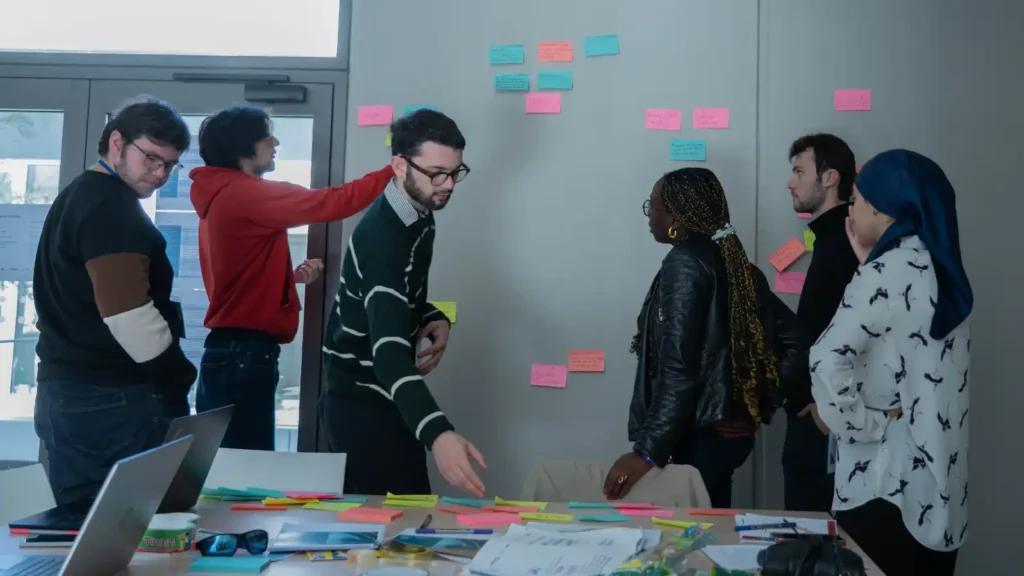
Building Transitions Through Collective Action and Local Engagement
In the face of the climate emergency and mounting pressure on marine ecosystems, coastal regions are on the frontlines. Born from a shared conviction, the 2025 Challenge Convergence offers a hands-on approach to transitions: co-creating solutions at the intersection of expertise, real-world challenges and local dynamics.
In resonance with the 3rd United Nations Ocean Conference (UNOC3), this edition puts action, collaboration and responsible innovation at the heart of training tomorrow’s engineers and managers.
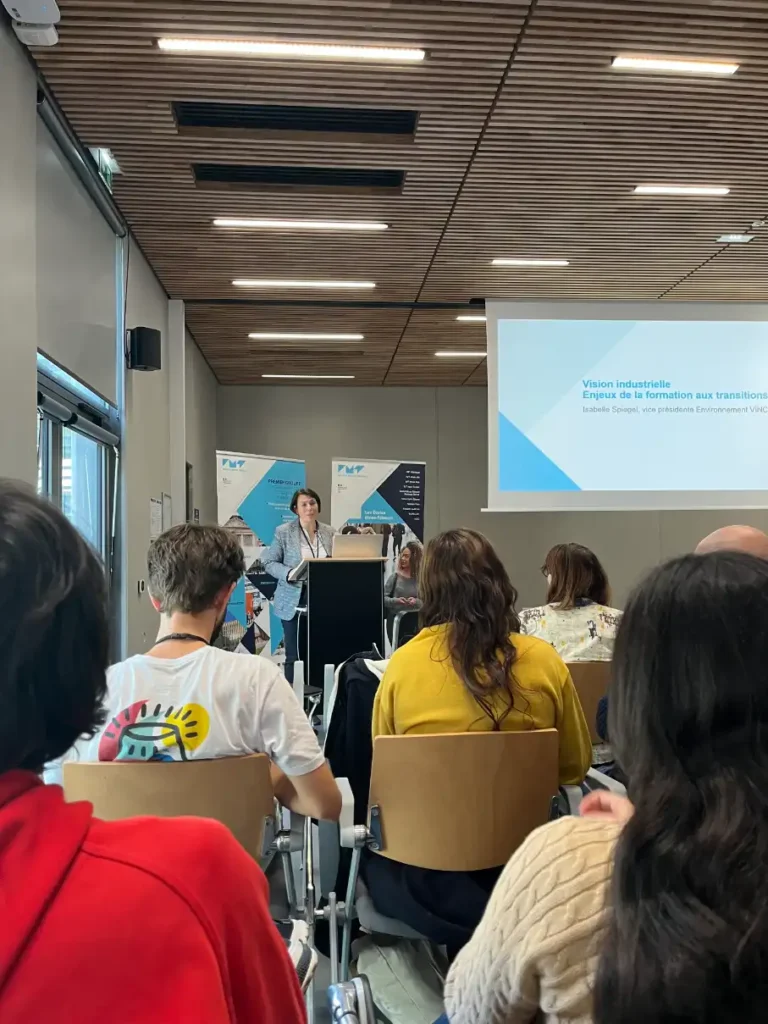
In her opening remarks, Ingrid Bazin, Strategic Project Director for Ecological Transition at IMT, emphasized the importance of raising awareness around transition issues for future engineers and managers. She spoke alongside Isabelle Spiegel, Environment Director and Executive Committee member at VINCI.
“Transitions now unfold in under a decade. Your profession will be in constant flux. Keeping a mindset of curiosity and entrepreneurship will be absolutely essential,” noted Isabelle Spiegel.
A Territory as a Living Lab for Transition
Hosted at the Ifremer research center, participants explored the Thau Basin – a unique lagoon ecosystem in Europe where fishing, shellfish farming, tourism, port operations and maritime innovation coexist.
“The sea is our horizon, a vital resource and a lever for the future. Our region is neither a metropolis nor a rural area – it’s the ideal scale for experimenting, responding and innovating,” explained Jean-Guy Majourel, Vice President of Sète Agglopôle Méditerranée, in his opening address.
Local voices – Maria Ruyssen (Ifremer), Hervé Marquès (Mayor of Sète) and Alex Larue (Agence des Transitions) – all highlighted the territorial grounding of the challenge.
“In this IMT Challenge, I see both the macro and the micro. And it’s the micro that speaks to me – because here, in Sète, it’s real. For us, it’s personal: your challenges are our own,” declared Mayor Hervé Marquès.
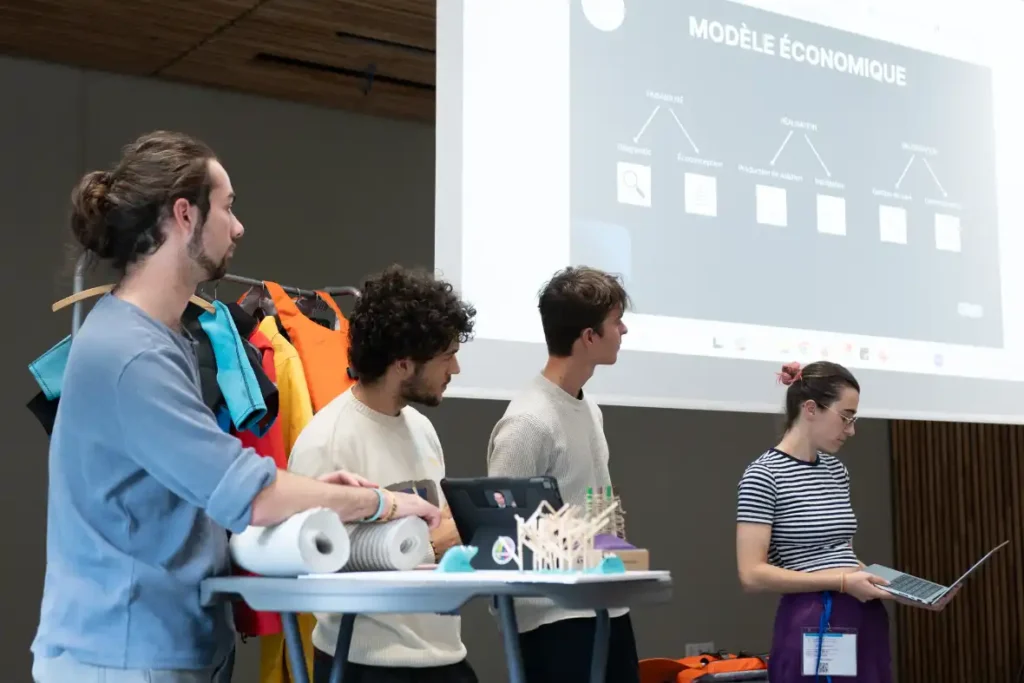
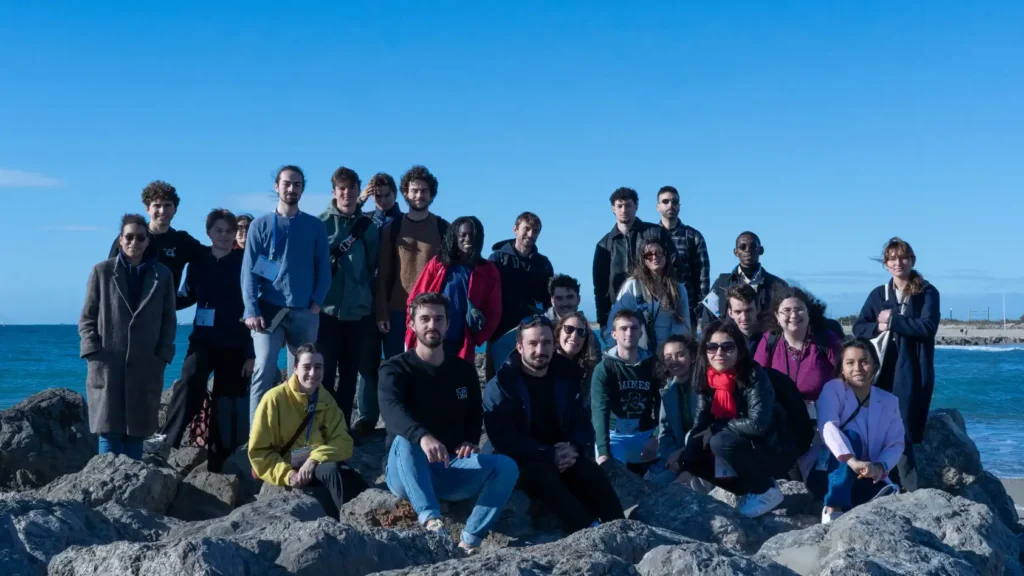
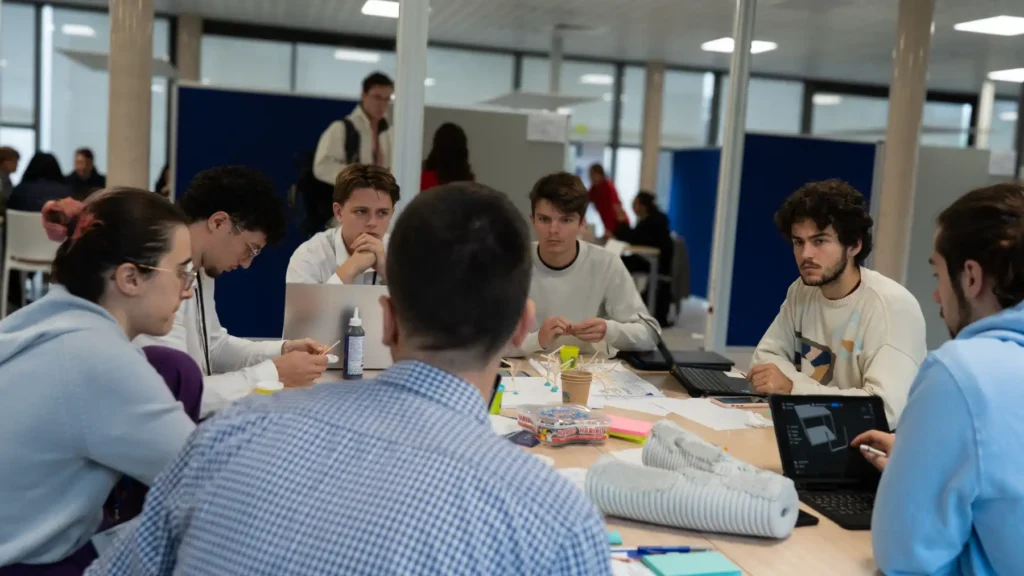
2025 Edition: Tackling Real-World Challenges to Rethink Our Relationship with the Sea
Guided by a team of coaches from IMT’s Technological Universities and incubator network, students worked in multidisciplinary teams to address six tangible challenges put forward by local partners:
SUEZ – Is reusing treated wastewater the future?
Exploring wastewater reuse in Sète amid growing water scarcity.
SÈTE AGGLOPÔLE MÉDITERRANÉE – Living sustainably on a changing coast
Designing resilient housing and economic models for eroding shorelines.
VINCI – Cleaning up river pollution
Developing innovative technical solutions to intercept pollutants before they reach the sea.
BLUE THAU LAB – Digitalizing lagoon oyster farming
Creating low-tech monitoring tools balancing productivity and climate adaptation.
LINEUP OCÉAN – Designing tomorrow’s ecological breakwaters
Imagining sustainable, scalable anchors for wave-dissipating, bio-inspired structures.
UNDA – Harnessing marine energy
Optimizing a pilotless boat to capture wave energy in the Mediterranean.
These challenges led to field investigations, site visits – including a wastewater treatment plant, the port of Sète, oyster farms and eroding beaches – and in-depth discussions with elected officials, engineers, scientists and business leaders.
Blending Immersion, Learning and Innovation
Launched in 2022 by IMT’s incubator network, the Challenge Convergence was custom-designed to equip engineering and management students with the tools to innovate while embracing a strong sustainability approach in response to real-world business challenges.
The program offers a high-impact, immersive experience that combines territorial engagement, applied learning and responsible innovation.
Essential Insights to Understand, Anticipate and Navigate Transitions
In addition to the contextual briefings provided by local stakeholders, participants attended a series of thematic talks woven throughout the program :
- Guillaume Junqua, researcher and lecturer at IMT Mines Alès, spoke about the rebound effect and the systemic limitations of the circular economy.
- Alice Hausser, sector lead for Océlian at VINCI Construction, introduced participants to the challenges of preserving the water cycle and related infrastructure.
- Explore Jourdain Foundation, an organization specializing in low-tech approaches, shared insights from its Kosmos project, highlighting how citizen science can serve biodiversity.
- Miguel Lopez Ferber, researcher and lecturer at IMT Mines Alès, presented the “Avoid–Reduce–Offset–Adapt” framework for addressing carbon-related impacts.
- Maria Ruyssen, Director of the Ifremer station, led a talk on territorial resilience, drawing from Ifremer’s ongoing research.
These contributions equipped students with the tools to critically assess key issues, build robust hypotheses, and design grounded, fair and sustainable solutions.
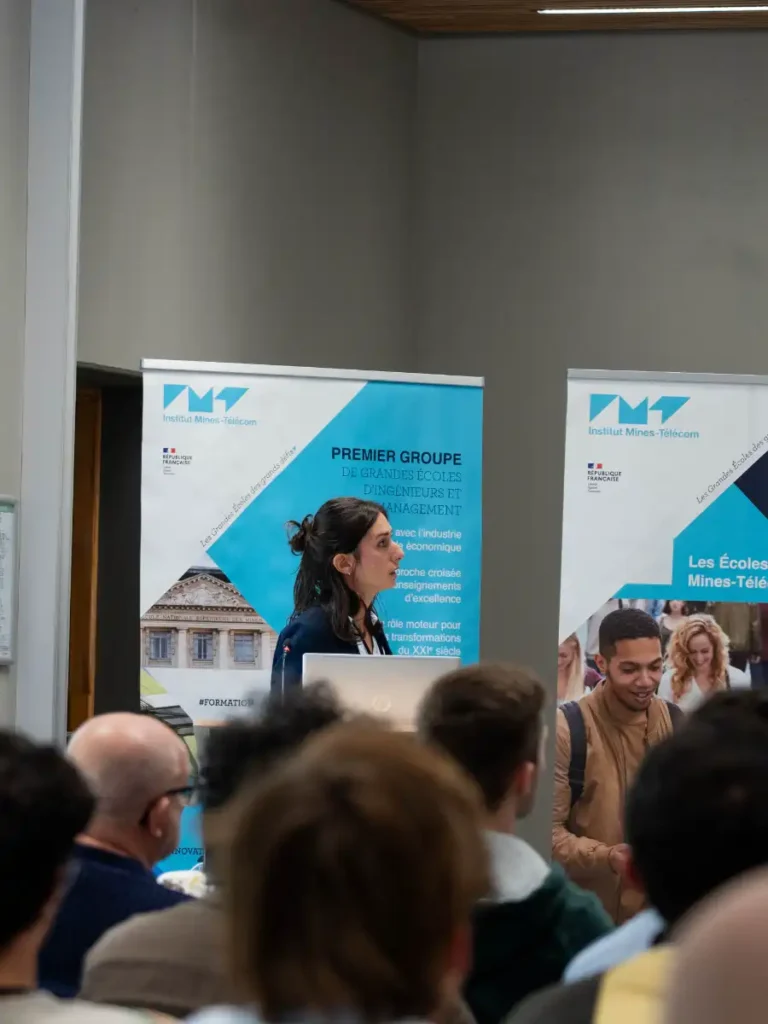
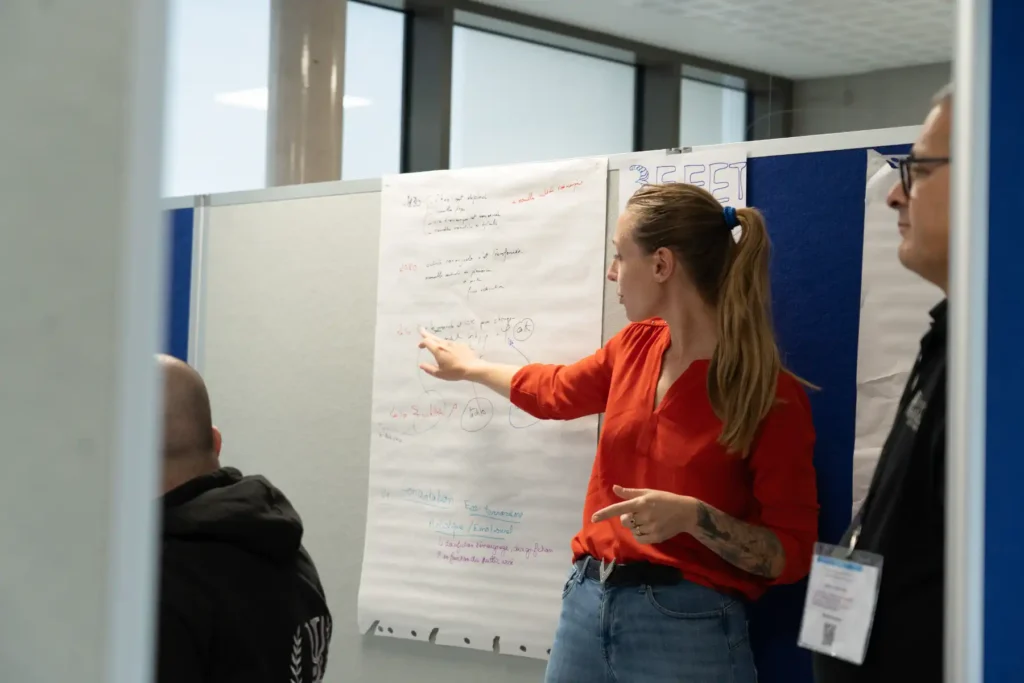
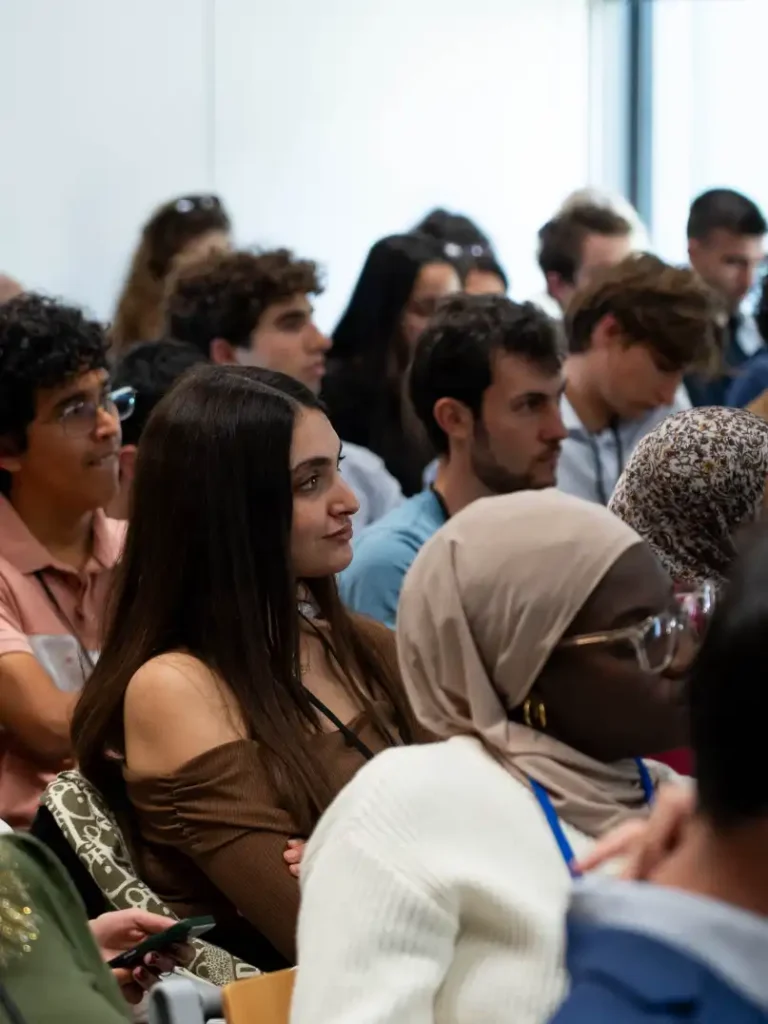
Field Investigations to Immerse in Local Realities
The teams experienced full immersion across the Sète region, guided by the project sponsors :
- SUEZ welcomed participants into a wastewater treatment plant to explore potential new uses for treated water.
- Sète Agglopôle Méditerranée and Aquagir led a territorial exploration to rethink resilient housing — from the summit of Mont Saint-Clair to a flood-prone neighborhood, where students engaged directly with local residents.
- VINCI hosted a guided tour of the port of Sète for the team working on solutions to reduce river pollution.
- Blue Thau Lab organized a visit to a local oyster farm that could benefit from their future low-tech monitoring solution for sustainable marine aquaculture.
- Lineup Ocean took students to the Sète coastline to explore the impacts of shoreline retreat and beach erosion, helping them imagine the next generation of ecological, low-tech, bio-inspired breakwaters.
A heartfelt thank you to Mathilde Le Roux (SUEZ), Yvon Iziquel (Sète Agglopôle Méditerranée), Géraldine Lamy (Port of Sète), Alexandre Pennaneac’h (Blue Thau Lab) and Robin Alauze (Lineup Ocean) for organizing and facilitating these key moments. Their insights and expertise were invaluable to all participants in the Challenge !
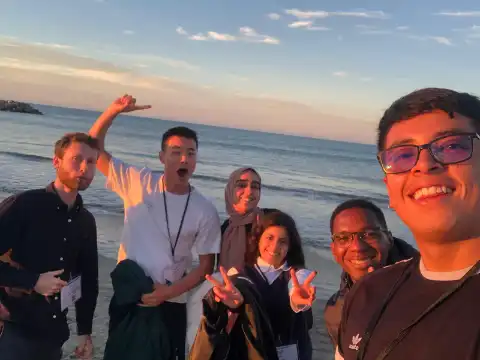
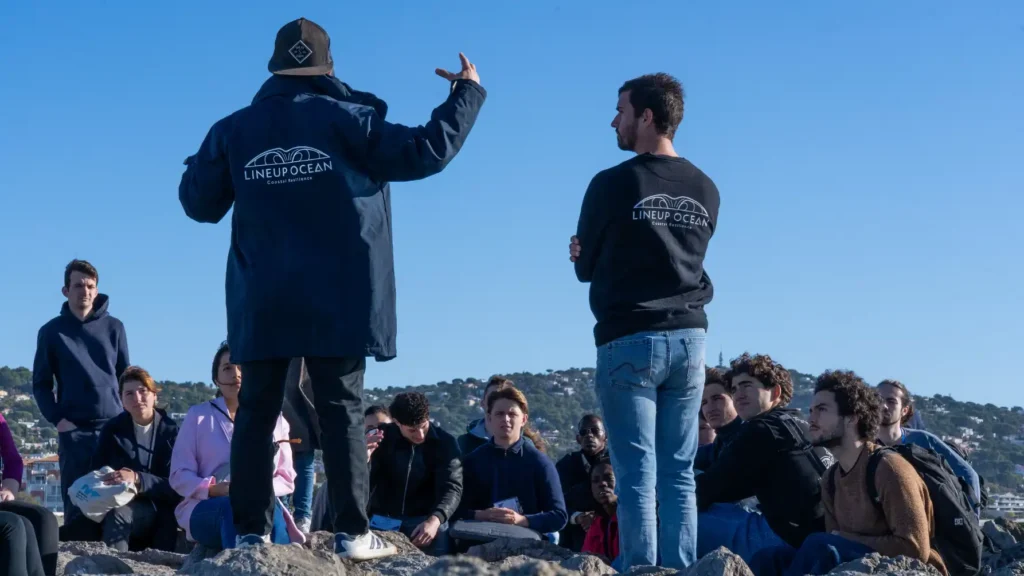
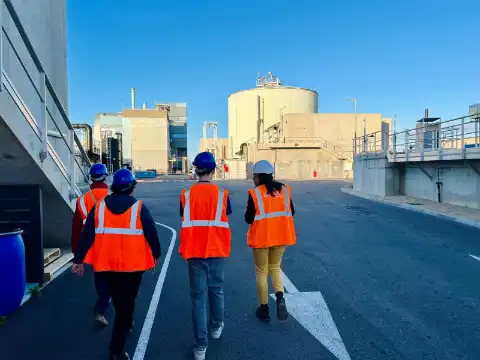
Three Winning Teams of the 2025 Challenge Convergence
Amid methodological insights, micro-talks, exchanges with scientific and regional experts, intensive work sessions and pitch rounds, three teams stood out…
1st Prize – Sustainable Innovation and Territorial Impact: Sea You Soon
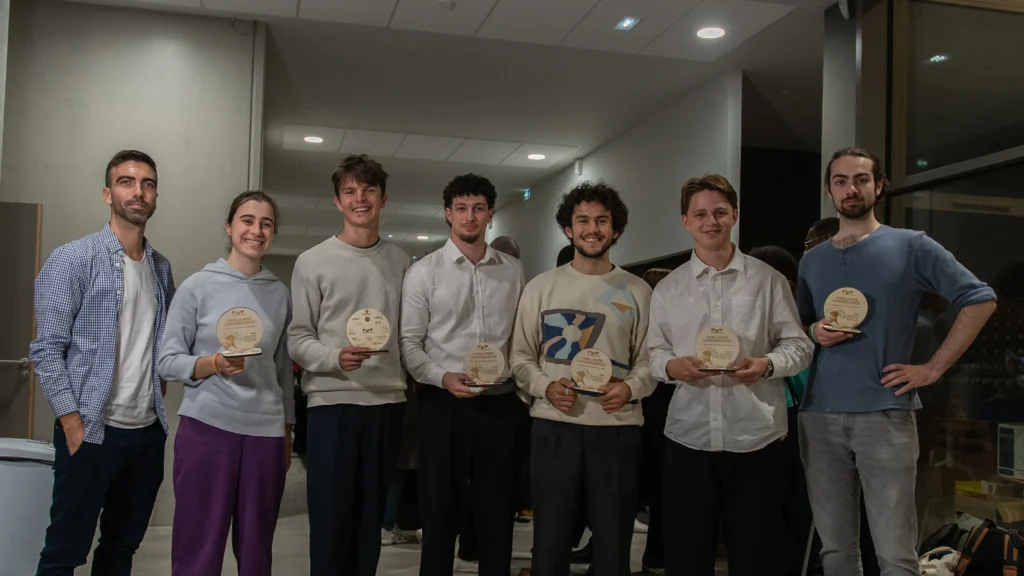
The Sea You Soon team won the 1st Prize for Sustainable Innovation and Territorial Impact for their response to the challenge set by Lineup Océan, a Montpellier-based startup founded by Robin Alauze, which designs and develops innovative, bio-inspired solutions to restore and rehabilitate marine ecosystems.
A big congratulations to Théo Antoine, Nina Germann, Colas Lemaistre, Césario Maqueda, Nathan Magnegneau and Lucine Schieber, supported by Rémi De Almeida, for their creativity and dedication.
2nd Prize – 2050 Vision: Effet’mer
The 2nd Prize – 2050 Vision was awarded to the Effet’mer team for their outstanding response to the challenge proposed by Sète Agglopôle Méditerranée: imagining new forms of resilient housing to adapt to coastal retreat.
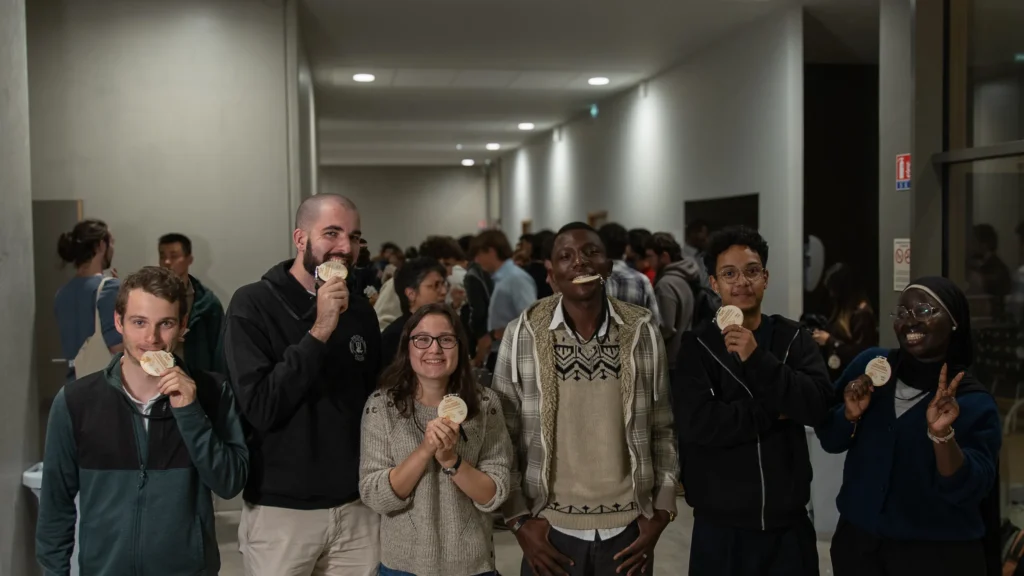
Congratulations to Mathéo Arnassan, Côme Blanchet, Maëlys Chantreau, Aissatou Diouf, Max Ries and Emmanuel Carlos Sibefeu, supported by Philippe Farenc, for their vision and the strength of their proposal!
Jury’s Favorite Award: Seanergie
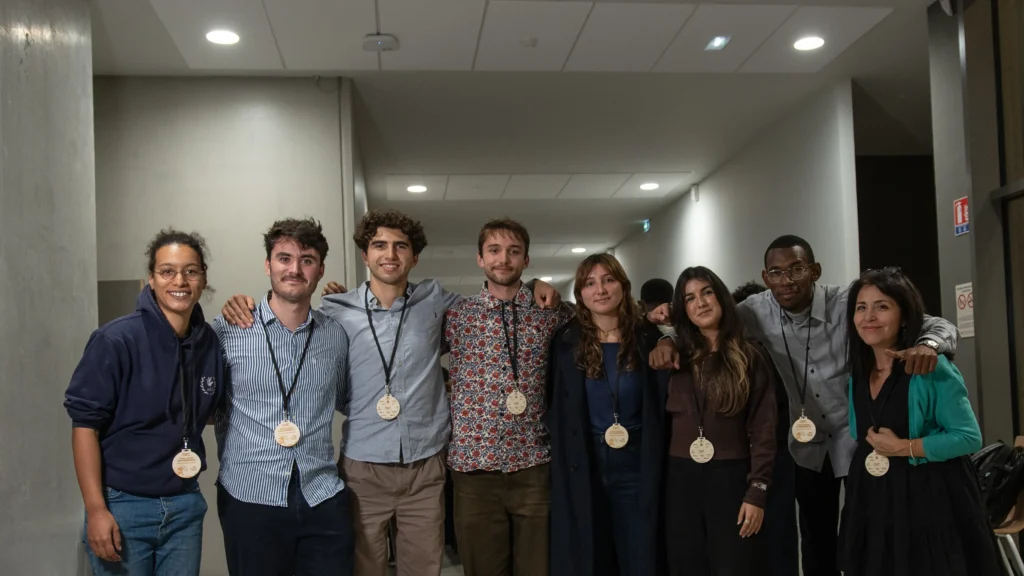
To wrap up, the Seanergie team received the Jury’s Favorite Award for their work on the challenge proposed by UNDA and led by Gwendoline Hernot: harnessing marine energy through an autonomous vessel designed to capture wave power.
Congratulations to Hugo Clair-Parre, Nathan Ducher, Ibtissam Essenhaji, Romane Jamet, Bouba Mohamadou and Auguste Verrier, along with their coach Yolima Fauchet – the competition was tough, but you did it!
A Collective Challenge for a Sustainable Future
Beyond the awards, this edition of the Challenge Convergence reflects IMT’s commitment to training professionals who are attuned to environmental challenges and equipped to innovate with – and for – local territories.
A heartfelt thank you to our partners and sponsors for their commitment alongside the students.
A special thanks goes to the project sponsors – Sète Agglopôle Méditerranée / Aquagir (a Banque des Territoires water subsidiary), Blue Thau Lab, SUEZ, UNDA, VINCI Construction and Lineup Ocean – for their trust and support throughout the challenge.
Finally, thank you to everyone — mentors, coaches, experts, and students — who made the 2025 Challenge Convergence a collective and inspiring success !

